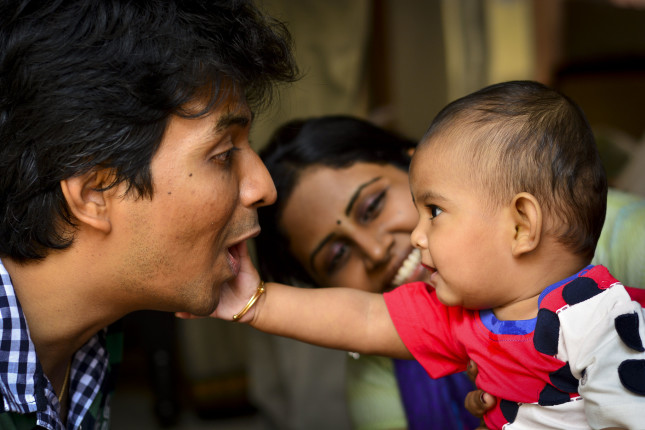-
Removing Barriers to Family Planning Essential for Conservation, Groups Agree
July 25, 2019 By Robert Engelman
The voluntary use of family planning, among its many benefits, is good for sustaining the healthy ecosystems that support all wild plant and animal species. This should be common sense. If your mission is environmental conservation, you should want to help remove barriers to reproductive health services, so that all women can space wanted pregnancies and avoid unintended ones.
On World Population Day, July 11, 2019, more than 150 non-governmental organizations—many focused on reproductive health but most on conservation—signed on to a joint statement saying exactly that. Never before have so many and such diverse organizations coalesced around the importance of family planning to the environment. The background report supporting the statement offers a roadmap for integrating family planning into conservation work, and in particular the sharpening focus of conservation organizations on mainstreaming gender in all activities. Having worked with the Margaret Pyke Trust of the United Kingdom to craft the statement and the background report, I’m personally gratified to see this level of unanimity around a message I’ve researched and written about for much of my career.
“Women everywhere must be able to choose whether to have children, how many children, and the spacing between them,” wrote primatologist and anthropologist, Jane Goodall, who has undoubtedly done more than anyone else for the survival of chimpanzees, in endorsing the statement. “This is critical for their own wellbeing. But they also need to be equipped with the knowledge as to how their choice affects the health of the planet and thus the future of their own children.”
It would be hard to argue with that, but it’s not said often enough—even by environmentalists, who certainly care about the health of the planet. Understandably, many may feel they have enough issues on their plate without taking on family planning. So it is encouraging that so many organizations joined in endorsing the statement, aptly titled Thriving Together.
The diversity of the signers shows how common and widespread the understanding is of family planning’s potential benefits to conservation. It’s enlightening just to peruse the missions and activities of the signers, now numbering 153 but with new additions still arriving, on the Thriving Together website. From Conservation International and the Population Council to Fundaeco, Borneo Nature Foundation and Africa Youth for SDGs, organizations large and small on every continent joined together in urging the removal of barriers to contraceptive use.
Their statement emphasized that:
“Family planning contributes to women’s empowerment, improves family and general health, advances education and life opportunities and, by slowing population growth, eases pressures on wildlife and ecosystems.”
“Like education and nutrition, family planning is fundamental to human dignity and critical for human health and development.”
“Integrating reproductive health improvements with sustainable natural resource management is a valuable development approach.” This is a reference to population, health and environment, or PHE, projects in communities that link the two areas of work. Several of the signing organizations are actively engaged in PHE, and others have expressed interest in getting involved.
“[F]amily planning must be grounded in human rights and reproductive intentions, the fundamental basis for collaborative cross-sector activities.” Of course. This is about honoring the choices individuals and couples make for themselves, not about pressure from anyone else on when or how often to have a child.
“We acknowledge that the future health of our planet has never been more uncertain, and that the health of people and ecosystems are connected.” This is the overarching reason to join forces in promoting the linked reproductive health of people and long-term health of ecosystems.
The Thriving Together initiative will live long after this year’s World Population Day, given that it seeks to inspire ongoing collaborations and coalitions among reproductive health and conservation organizations worldwide. One immediate objective is to institutionalize support for rights-based family planning as a critical conservation strategy of the International Union for the Conservation of Nature. The IUCN, 40 of whose members (including the Margaret Pyke Trust) signed the Thriving Together statement, may consider a motion the Trust is drafting for approval at the next quadrennial World Conservation Congress, to be held in Marseilles, June 11–29, 2020.
The overall initiative was the brainchild of David Johnson, CEO of the Margaret Pyke Trust, which coordinates the Population and Sustainability Network. An attorney who formerly worked in conservation in South Africa, David was confident that most conservationists understand the challenges that dense and growing human populations can pose to the conservation of ecosystems and species. That challenge is documented in detail in a recent and much publicized UN report on the decline of biodiversity and its causes. Prominent scientists warn that human activities are now bringing on a sixth mass extinction of the world’s species, following five that occurred before humans evolved.
David argues that population is anything but a taboo topic in conservation circles. Rather, he contends, it’s discussed openly and often, but with insufficient understanding of what can be done. Enter Thriving Together, which is designed to convey the benefits of reproductive freedom and removing the barriers—from lack of physical access to lack of women’s autonomy—to the use of family planning.
Thanks to David’s vision and the coalition he and his colleagues have assembled, there’s new hope for reproductive health, the well-being of women, more sustainable population change, and the survival of ecosystems and the diverse species they support.
Robert Engelman is a senior fellow at the Population Institute, a consultant to the Margaret Pyke Trust, and former president of the Worldwatch Institute. He directed the Worldwatch-sponsored Family Planning and Environmental Sustainability Assessment.
Sources: Africa Youth for SDGs, Borneo Nature Foundation, Conservation International, Fundaeco, International Union for the Conservation of Nature, Margaret Pyke Trust, Population and Sustainability Network, Population Council, Thriving Together, United Nations, World Conservation Congress.
Photo Credit: Photo by Flickr user Harsha K R, June 2013.
 A Publication of the Stimson Center.
A Publication of the Stimson Center.



